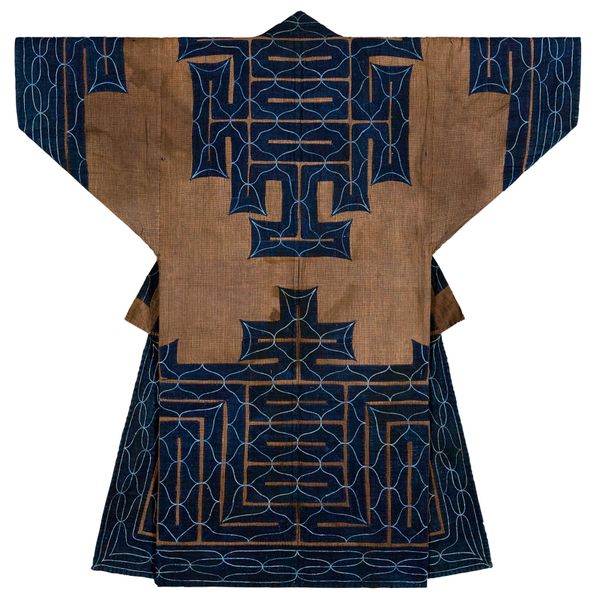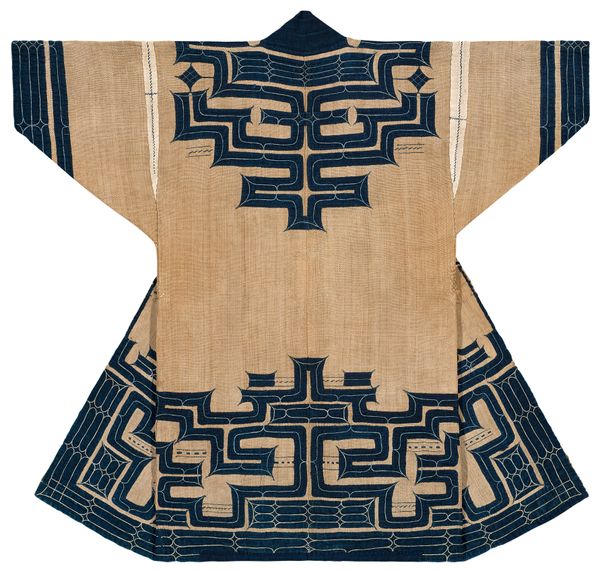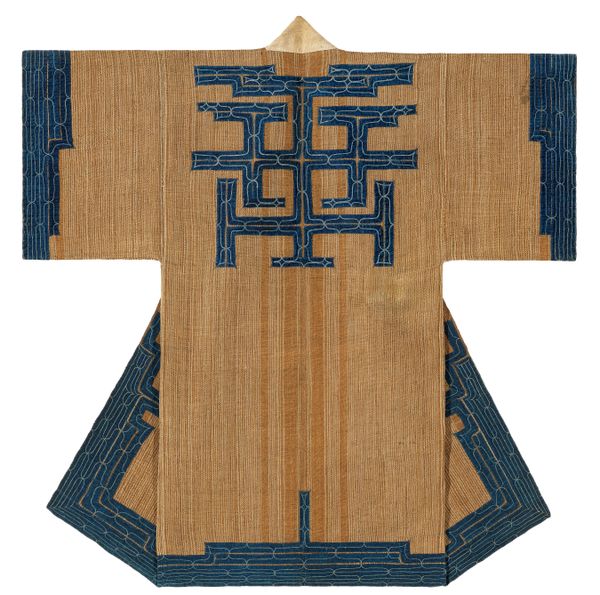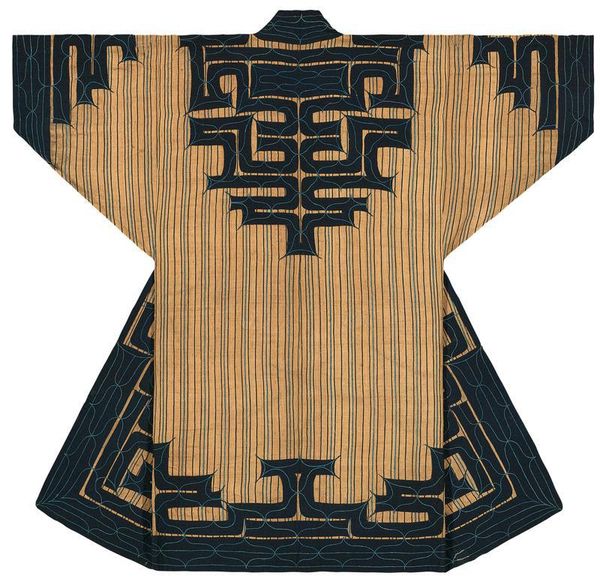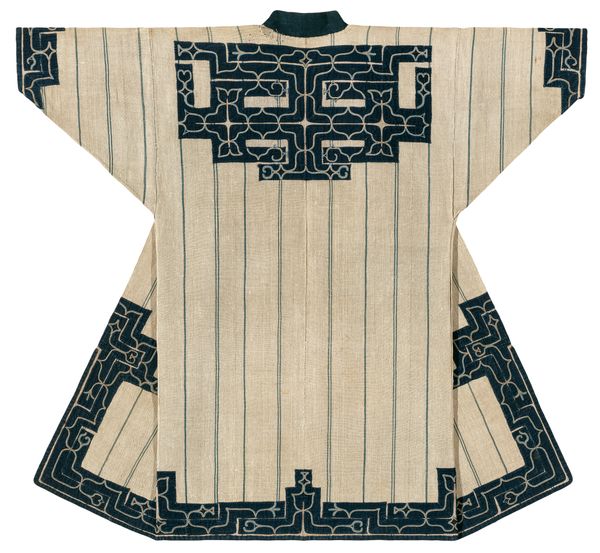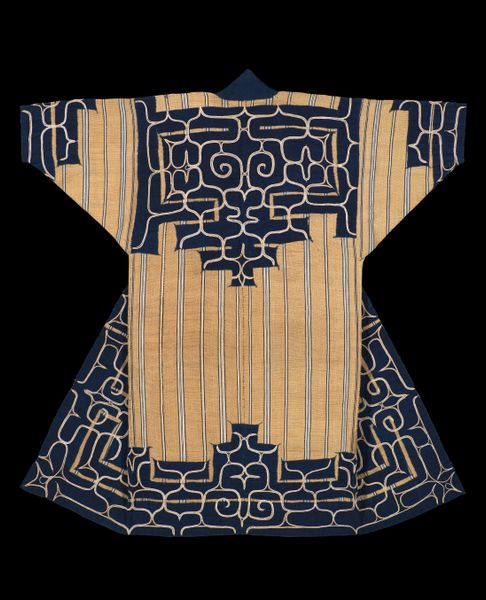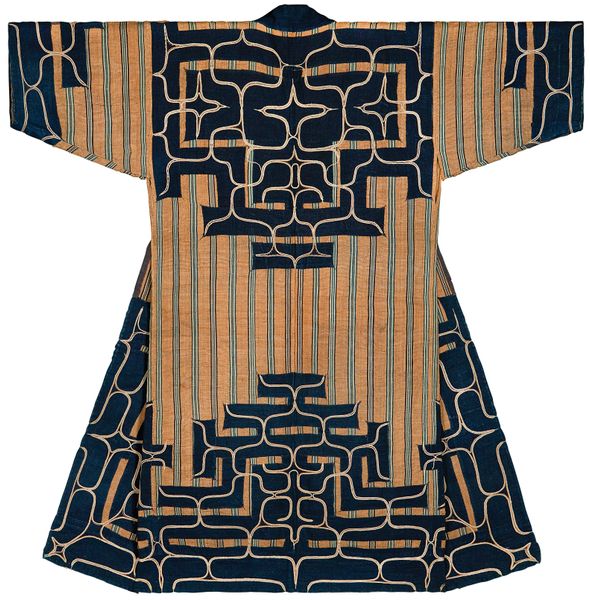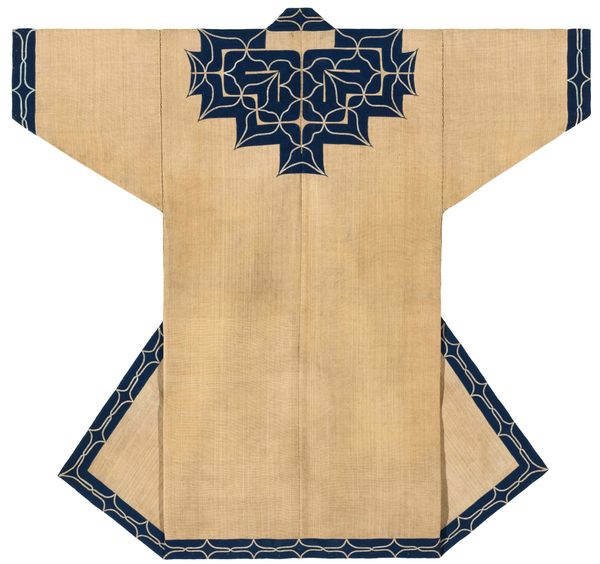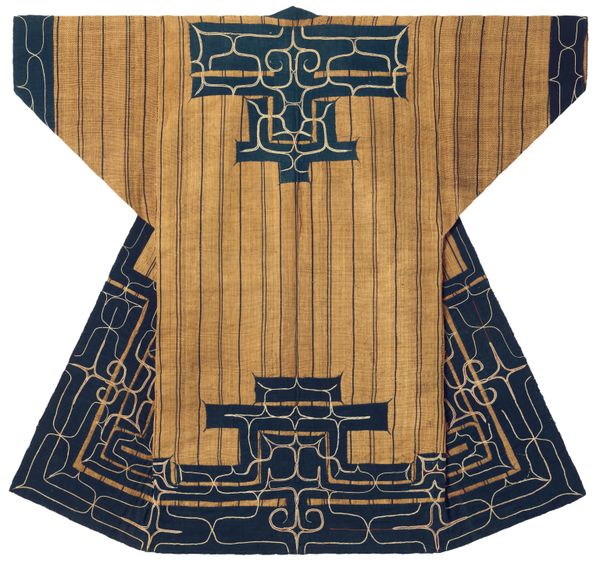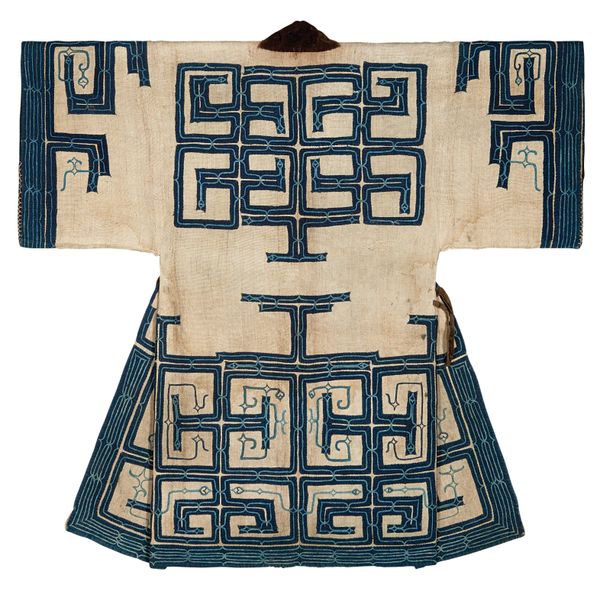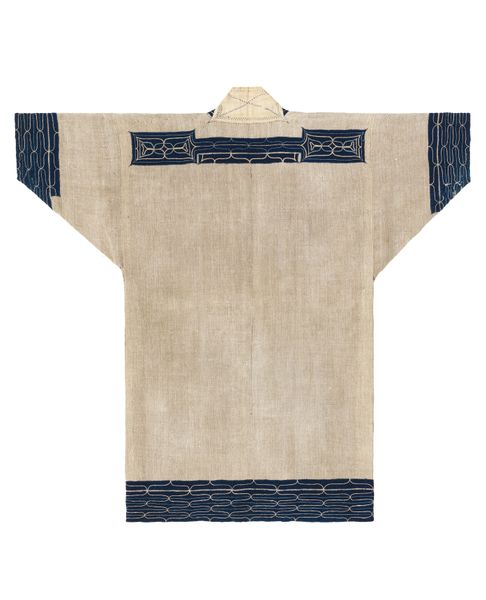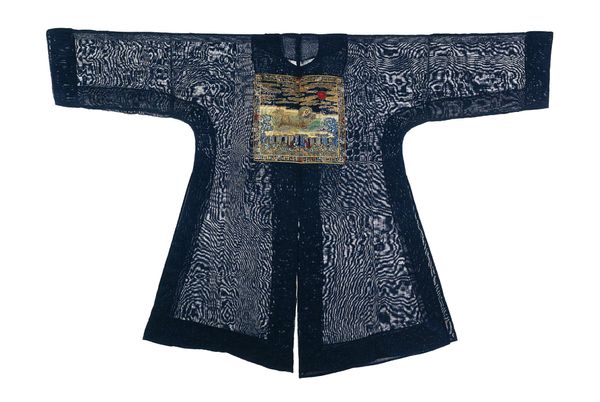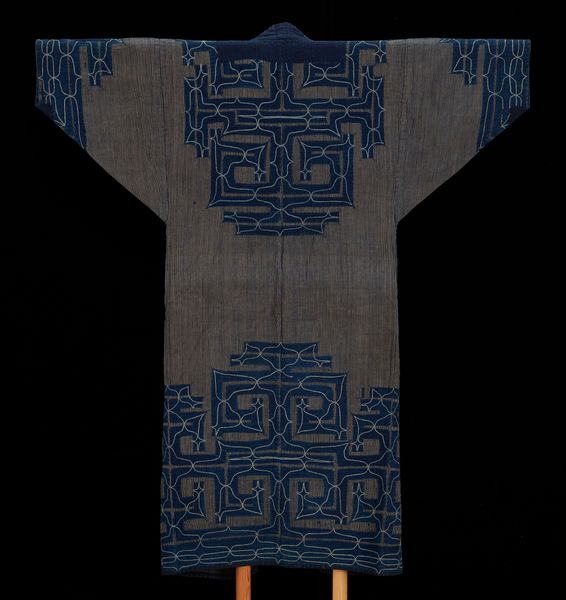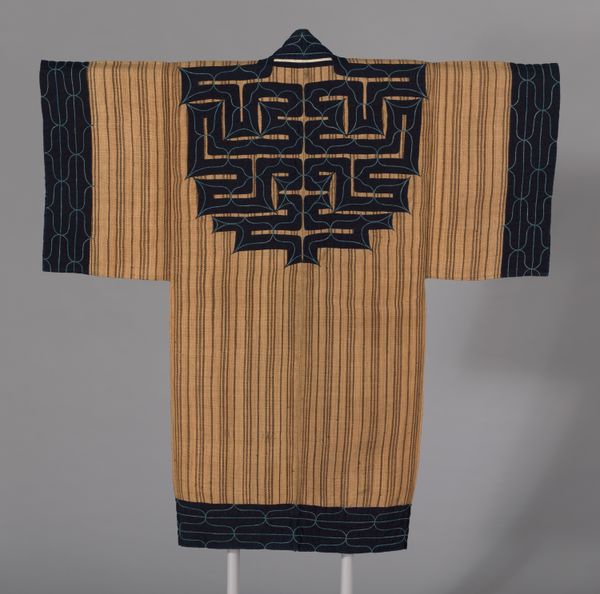
Attush robe with extended point embroidery c. late 19th century
0:00
0:00
tempera, textile
#
pattern heavy
#
tempera
#
pattern
#
asian-art
#
textile
#
collage layering style
#
ukiyo-e
#
fashion and textile design
#
japan
#
repetitive shape and pattern
#
fabric design
#
clothing photo
#
pattern repetition
#
textile design
#
decorative-art
#
imprinted textile
#
layered pattern
Dimensions: 47 × 45 3/4 in. (119.38 × 116.21 cm) (overall)
Copyright: Public Domain
This Attush robe, adorned with extended point embroidery, resides in the Minneapolis Institute of Art. The most striking aspect is the embroidered pattern on the back, a complex geometric abstraction in dark indigo. This pattern, though unique, resonates with the symbolic weight we often find in ancient cultures. It is not merely decorative; it seems to carry a deeper significance, perhaps functioning as an emblem of status, clan identity, or even spiritual protection. Across cultures, geometric motifs are frequently used to symbolize abstract concepts or to connect with the spiritual realm, their endurance a testament to their potency. Consider, for instance, the endless knot in Tibetan Buddhism or the Celtic knot, each embodying notions of eternity and interconnectedness. The design echoes in motifs found across epochs—a testament to how deeply ingrained such symbols are in our collective consciousness. This symbol, like others, taps into our subconscious, triggering associations and stirring emotions that transcend cultural boundaries. In this regard, the power of symbols lies not just in their overt meaning, but in their capacity to resonate with our deepest selves.
Comments
No comments
Be the first to comment and join the conversation on the ultimate creative platform.
